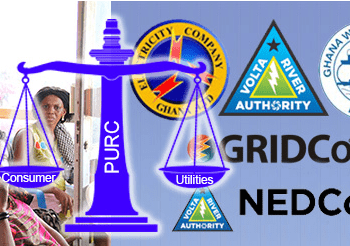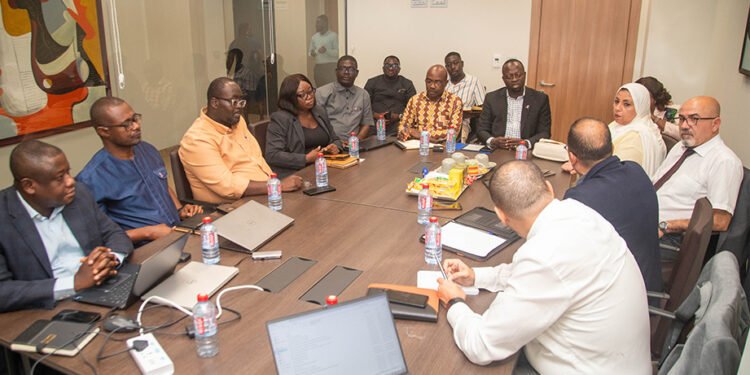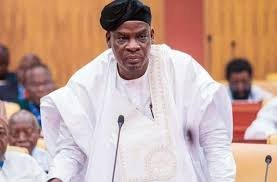The opening fireside chat at the African Energy Week (AEW): Invest in African Energies 2025 conference set the tone for the week-long gathering, highlighting the importance of an Africa-first approach to natural gas development.
Energy ministers from Ghana and Senegal joined executives from Kosmos Energy to stress how domestic-focused gas projects can accelerate economic transformation across West Africa.
The session, sponsored by Kosmos Energy, underscored how prioritizing natural gas not only strengthens energy security but also supports long-term industrial growth, job creation, and sustainability in a region striving for affordable and reliable energy.
Ghana’s Minister of Energy and Green Transition, Hon. John Abdulai Jinapor, detailed his country’s progress in monetizing gas, framing it as a model for other African economies.
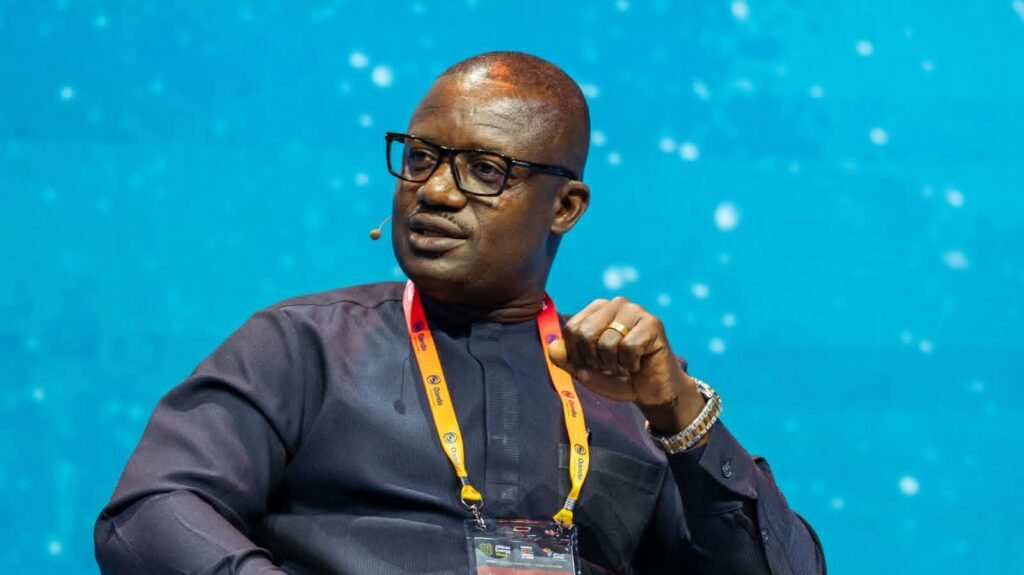
“Gas is an essential commodity. We have a gas-to-power policy, with gas accounting for 90% of our fuel in Ghana.
“What we have achieved so far can serve as a model for other economies so that Africa can achieve energy security through gas.”
Hon. John Abdulai Jinapor, Minister of Energy and Green Transition
Over the last decade, Ghana has gradually reduced its dependence on imported liquid fuels by integrating domestically produced gas into its power generation system.
This transition has stabilized electricity supply, lowered generation costs, and positioned gas as a cornerstone of Ghana’s energy transition strategy.
Senegal’s Energy, Petroleum and Mines Minister, Birame Soulèye Diop, reflected on his country’s rapid rise as a global oil and gas producer.
The commissioning of the Sangomar oil and gas field and the Greater Tortue Ahmeyim (GTA) project in 2024 marked a historic milestone for Senegal, placing it firmly on the global energy map.
“In Senegal, we have a goal to reach universal access to energy by 2029. Today, we are a country that exports oil and gas. But the cost to access fuel is still high.
“We would like to produce more for the country so that we can access resources for electricity. With gas, there are a lot of opportunities.”
Birame Soulèye Diop, Senegal’s Energy, Petroleum and Mines Minister
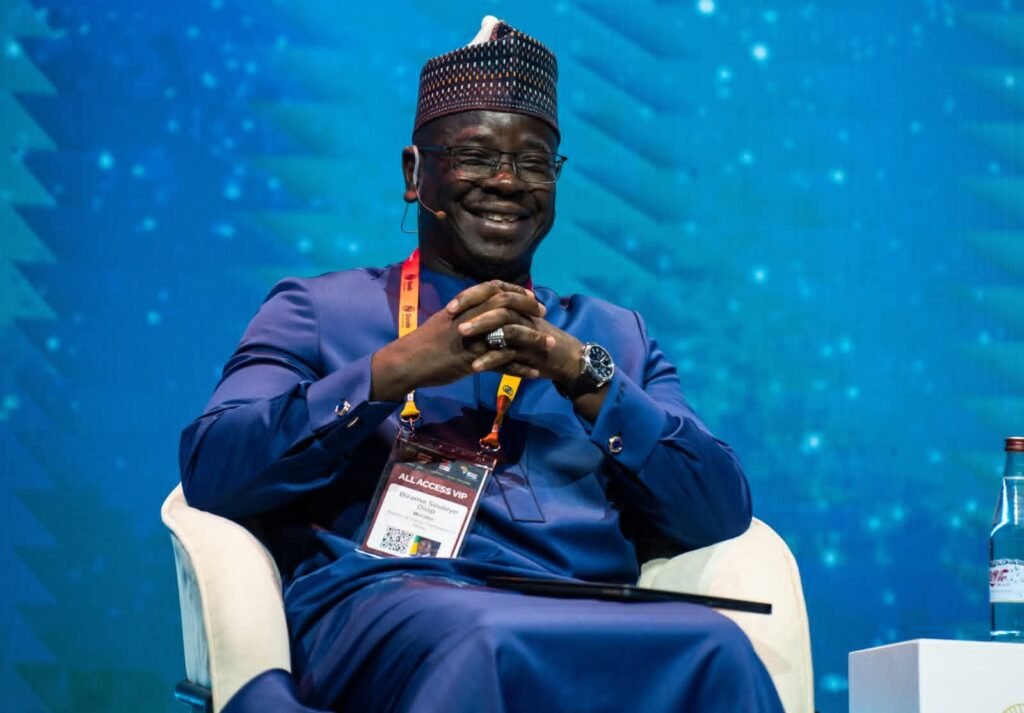
He outlined plans to convert operational oil refineries to process gas, a strategy designed to lower fuel costs and expand access to electricity across the nation.
The GTA project, a joint venture led by BP and Kosmos Energy, has already begun producing liquefied natural gas with an initial capacity of 2.3 million tons per annum (mtpa).
A second phase, scheduled in the coming years, will double capacity to 5 mtpa, further cementing Senegal’s role as a global exporter while also opening new domestic opportunities.
Kosmos Energy’s Domestic Focus
For Kosmos Energy, a key player in both Ghana and Senegal, the priority now is ensuring that natural gas fuels local development. Company CEO Andrew Inglis emphasized the importance of using gas domestically rather than focusing exclusively on exports.
“Fundamental to the development of Senegal is the use of gas for domestic purposes.
“That is our next agenda: to work with the ministry to expand the scheme to deliver domestic gas,”
Andrew Inglis, CEO of Kosmos Energy
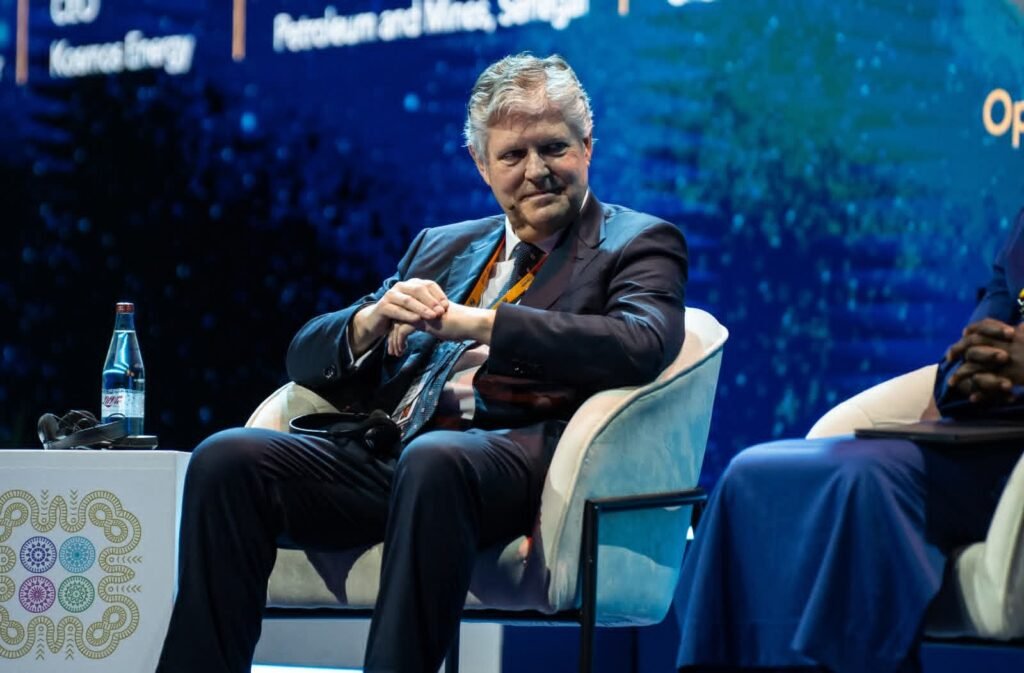
Inglis referenced the Yakaar-Teranga project, which is advancing toward a final investment decision in 2025. The project aims to channel gas directly into Senegal’s power generation sector, expanding access and stabilizing supply.
Inglis also pointed to the importance of strong governance and public-private partnerships.
“An aligned national agenda is the bed-rock of investment. If you are aligned on intent, then delivery is a lot easier.
“With both Senegal and Ghana, there is clarity in terms of what the countries need and Kosmos Energy is ready to support that.”
Andrew Inglis, CEO of Kosmos Energy
Regional Lessons for Africa
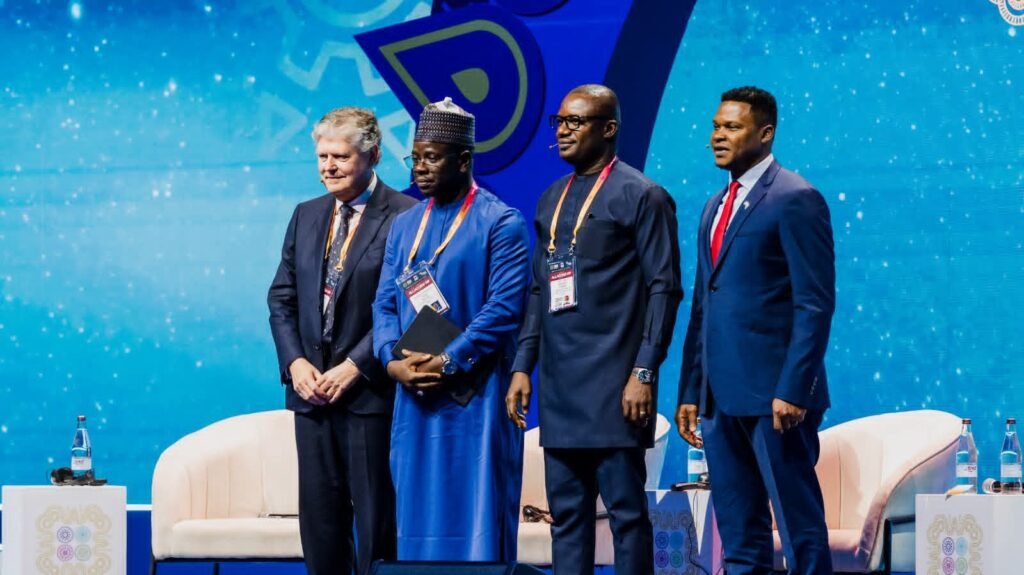
The fireside discussion framed Ghana and Senegal as examples of how African countries can harness their natural resources to power inclusive growth.
With over 600 million Africans still lacking access to electricity, the ministers agreed that prioritizing gas for local consumption must be central to the continent’s energy agenda.
Both nations are showing that effective policies, investor-friendly frameworks, and a focus on domestic energy needs can unlock value far beyond exports.
Their strategies not only promise to expand access to electricity but also to spur industrialization, reduce energy costs, and provide long-term economic resilience.
As Africa navigates the global energy transition, the discussions in Cape Town underscored that natural gas will remain a vital bridge fuel for the continent one that balances development, sustainability, and competitiveness.
With bold projects like Ghana’s gas-to-power program and Senegal’s GTA and Yakaar-Teranga developments, West Africa is positioning itself as a leader in demonstrating how gas can drive prosperity at home while still competing on the international stage.
READ ALSO: Market Cheers as Ghana’s Treasury Auction Breaks Four-Week Drought with 15.8% Oversubscription









